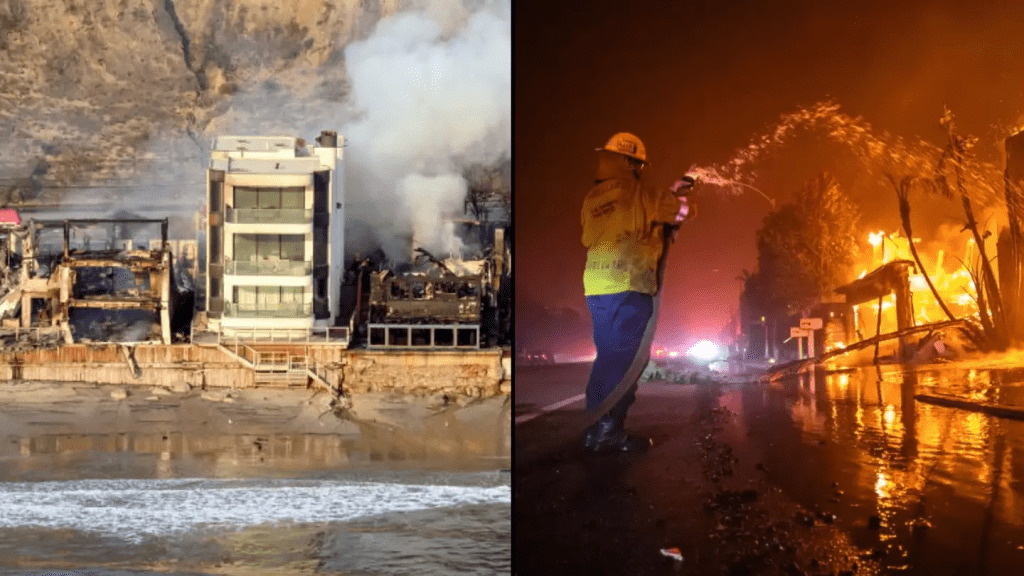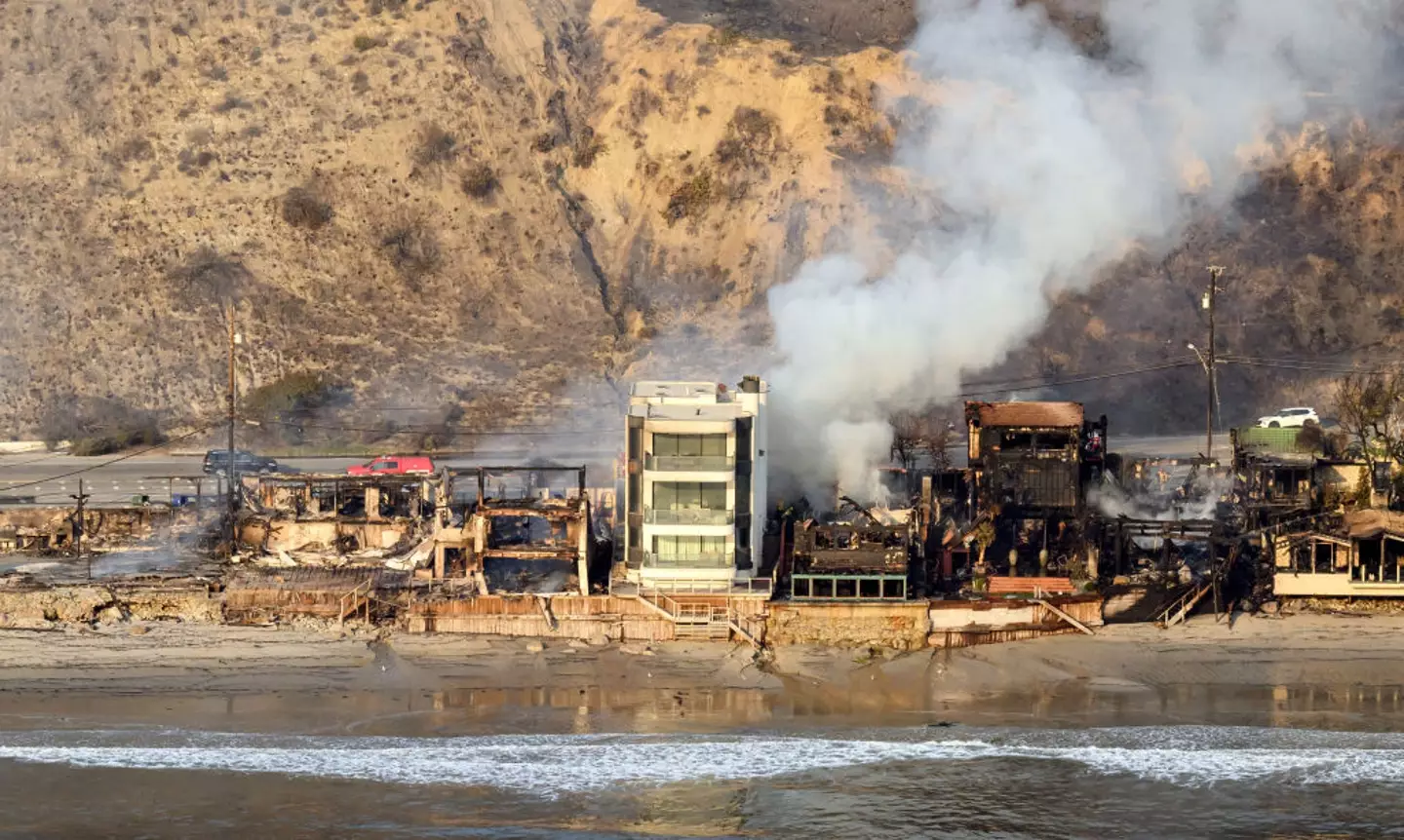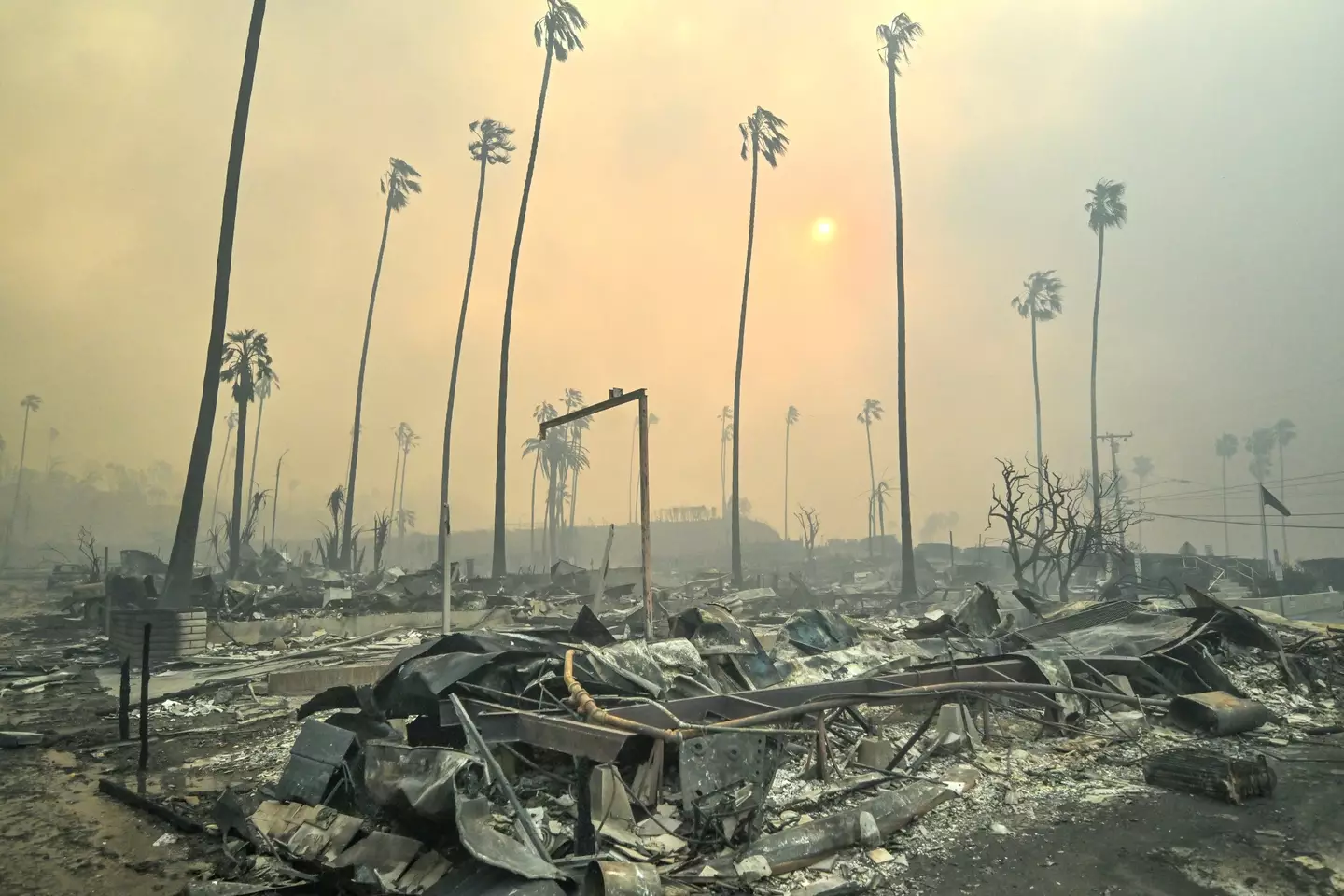When raging wildfires sweep through neighborhoods, leaving devastation in their wake, stories of survival become rare and extraordinary. This was the case for David Steiner, a retired business tycoon, whose $9 million Malibu mansion astonishingly remained standing amidst the inferno. While homes on either side were reduced to rubble, Steiner’s property endured, prompting many to ask—what saved it?
Let’s explore the details of this remarkable story and uncover the secrets behind the house’s survival against all odds.

The Devastation of the LA Wildfires
Los Angeles County has become no stranger to wildfires, but the recent Palisades fire was particularly catastrophic. Spanning over 20,000 acres and destroying more than 5,000 homes and businesses, it became one of the largest and most destructive wildfires in the region’s history.
Strong winds, dry conditions, and a lack of rain created the perfect storm for these fires to spread uncontrollably. Tragically, entire communities were uprooted, and even celebrities like Paris Hilton, Anna Faris, and Eugene Levy faced the loss of their homes. Amidst this widespread destruction, Steiner’s mansion stood out—a lone structure that defied the odds.
The Morning After: A Miracle Unfolds
David Steiner, a retired waste-management executive, was not in Malibu when the fire struck. He had resigned himself to the idea that his three-story vacation home was gone after a contractor informed him that flames were engulfing the area.
“I was told, ‘It looks like your house is going too,’” Steiner recalled. Resigned to the worst, Steiner didn’t expect the messages that followed. Friends began contacting him with surprising news: his house had become a symbol of resilience, standing untouched amid the devastation. “My wife sent me something that said, ‘Last house standing.’ It brought a smile to my face during a pretty bad time,” he said.

David Steiner’s mansion was miraculously still standing despite the devastating blaze (JOSH EDELSON/AFP via Getty Images)
The Design That Saved the Mansion
Steiner credits the survival of his 4,200-square-foot, four-bedroom mansion to its exceptional design and construction. Built to withstand earthquakes, the house also turned out to be a fortress against fire.
“It’s stucco and stone with a fireproof roof,” Steiner explained. The property’s robust design features include pilings driven 50 feet into the bedrock, making the structure incredibly stable, even against natural disasters. Though it was originally designed with earthquakes and strong coastal waves in mind, these features inadvertently turned it into a fire-resistant sanctuary.
Key Features That Contributed to Its Survival
- Fireproof Roofing Materials: The mansion’s roof was made with fire-resistant materials, a critical feature that likely prevented flames from igniting the structure.
- Stucco and Stone Construction: Unlike wood, these materials are far less flammable, adding another layer of protection.
- Bedrock Foundation: The deep pilings ensured the house remained secure, even under extreme conditions.
- Strategic Design: The house’s architecture, which Steiner likened to a cruise ship, was built with durability at its core. This innovative approach helped it withstand not just earthquakes but also the ferocity of wildfire flames.

The Palisades Fire has decimated neighbourhoods (Jeff Gritchen/MediaNews Group/Orange County Register via Getty Images)
A Sobering Perspective Amid Relief
While Steiner is grateful that his mansion survived, he remains deeply aware of the broader tragedy around him. He emphasizes that his family wasn’t emotionally tied to the Malibu property since it wasn’t their primary residence. “What I lost is material goods,” he noted. “Others lost their homes, memories, and family mementos.”
Steiner’s empathy extends to his neighbors and the thousands of families who were less fortunate. Despite his gratitude, he acknowledges that his home’s survival was a rare exception in a sea of loss.
The Role of Wildfire-Resilient Construction
Steiner’s story highlights the importance of designing homes to withstand natural disasters. In regions prone to wildfires, implementing fire-resistant materials and smart architectural techniques can mean the difference between survival and devastation. Key recommendations for fire-resilient construction include:
- Using Non-Flammable Materials: Stucco, stone, and metal roofs are ideal for reducing the risk of fire damage.
- Creating Defensible Space: Clearing vegetation and debris around the property can help slow the spread of wildfires.
- Installing Fire-Resistant Windows: Double-pane or tempered glass windows offer additional protection from intense heat.
- Employing Sealed Construction: Ensuring all openings, including vents and eaves, are sealed reduces the chance of embers entering the home.
Steiner’s home serves as a powerful example of how proactive measures can mitigate the risks posed by wildfires.
.jpg)
Thousands of buildings have been destroyed. (Apu Gomes/Getty Images)
The Ongoing Threat of Wildfires in California
California’s wildfire seasons have grown longer and more intense due to climate change, drought, and urban expansion into fire-prone areas. The Palisades fire is just one of many examples of how these factors combine to create disasters that devastate communities.
Efforts to combat wildfires include controlled burns, improved emergency response systems, and stricter building codes for homes in high-risk areas. However, individual homeowners also play a crucial role in adopting fire-safe practices.
Conclusion
David Steiner’s Malibu mansion is more than just an architectural marvel—it’s a testament to the power of smart design and fire-resistant construction. While its survival amidst the LA wildfires is extraordinary, it underscores the need for greater awareness and preparedness in wildfire-prone regions.
As communities face increasing threats from natural disasters, Steiner’s story serves as both an inspiration and a reminder. With the right measures, we can protect not only our homes but also the lives and memories they hold.